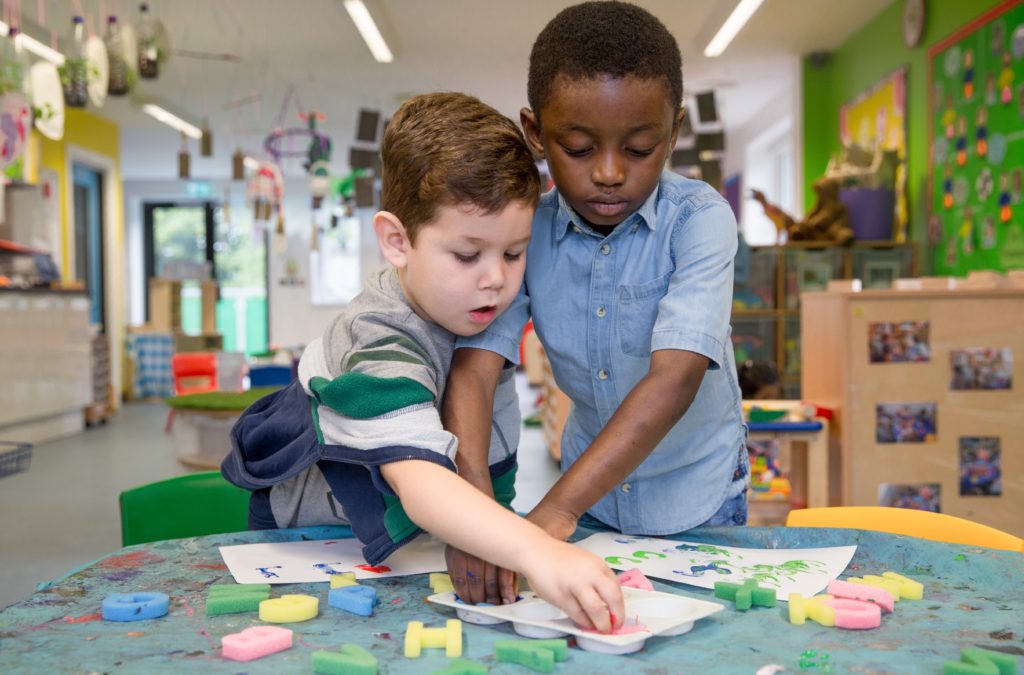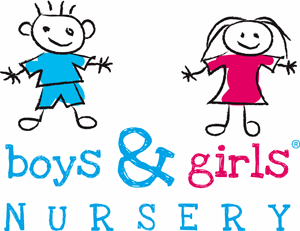Blog - Nursery Talk

What is School Readiness?
Parents often associate school readiness with ensuring their child is able to read, write and have a basic understanding of numbers before starting a Reception Class. However, school readiness is much more than this, it’s about the development of the whole child – their social and emotional skills, physical skills, communication skills and cognitive skills are just as, if not more important than their intellectual skills. Research indicates that children cannot thrive and learn successfully at school if they haven’t developed this wider range of skills first. When children are developmentally ready to learn, they tend to do better in school.
Nurseries, pre-schools and parents play a very important role in developing all of these skill sets, as development and learning for young children is underpinned by play. It is through collaborative play that children develop physically, intellectually, creatively, socially and emotionally and gain valuable life skills.
What kind of skills do children need to develop before starting school?
Children are more likely to be ready to learn in a school setting if they:
- Have self confidence
- Have high self-esteem
- Can take turns, share and get along with others
- Can sit and listen for a short period
- Can separate from parents/carers easily
- Can follow simple instructions
- Can communicate their needs and listen to others
- Can actively learn
- Independently use the toilet
- Are able to dress and undress themselves
- Can feed themselves using cutlery and make their own food choices
- Understand expected levels of behaviour
- Have developed both fine and gross motor skills
- Have a basic grasp of hearing, recognising and blending sounds
- Have a basic grasp of numbers
- Develop a rich vocabulary
Pre-Schools play a key role in preparing children for school readiness by developing children’s ability to:
- Play and work co-operatively, learning to accept others’ differences, to be resilient and to question
- Play and work independently, at times without close supervision, taking responsibility, for example by caring for their environment
- Care for their own belongings and for pre-school resources including tidying up
- Feel socially, emotionally and physically secure to enable them to behave appropriately and become confident active learners using all of their senses
- Develop their knowledge, skills and understanding across all areas of learning
- Initiate activities, showing their own initiative and making decisions
- Develop mark making skills, moving into writing their own name
- Establish a dominant hand and develop the correct pencil grip
- Have time to explore their own ideas and interests in depth, to make links and discuss their learning
- Develop their concentration and become deeply involved in activities
- Learn in different ways, at different rates, to recognise that they have learned something new and improved their understanding
- Know how to keep themselves safe and healthy
- Follow instructions and respond to questions
- Recognise their own name
How can parents promote school readiness at home?
- Encourage your child to have conversations with you – ask them questions, listen to their answers, and encourage them to talk about what they think and feel so they can express themselves with new friends and teachers
- Try to arrange play dates with other children starting at the same school. This gives them the chance to develop their social skills and will give them the confidence that they will have a friend to talk to when they start school
- Encourage your child to dress and undress themselves, use the toilet independently and wash their hands
- Let your child make food choices, show them how to use cutlery to cut up their food and feed themselves
- Ensure they understand the difference between right and wrong
- Help to develop their gross motor skills by allowing them to climb and pull their own weight up onto monkey bars, in order to develop strength for writing
- Let your child practise drawing with a range of different materials, such as pencils, crayons, chalks etc to help develop their fine motor skills – and remember to praise their efforts
- Help them to recognise and attempt to write their name – it’s okay if they get it wrong, children learn by making mistakes
- Read with your child as often as possible. If they have some reading skills already, that’s great! But if not, don’t worry – they will be taught how to read at school. Just enjoying books with you develops early literacy skills and helps encourage a love of reading. When reading with your child, talk to them about the story, point out new words, and ask questions – this will help with their comprehension, vocabulary and language skills
- Help your child develop a basic awareness of numbers by helping out around the house – they could set the table and count the plates, match socks from the washing line, or measure the ingredients for some baking
- Play games – simple board games (like snakes and ladders) and card games (like snap) are great for practising turn-taking, sharing, waiting and learning to cope with not winning!
Remember, every child develops at their own pace and has their own strengths, interests, temperament and approach to learning. Try not to compare your child to others, including siblings!
Miss R Workman – Headteacher & Pre-School Mum!
April 2019

